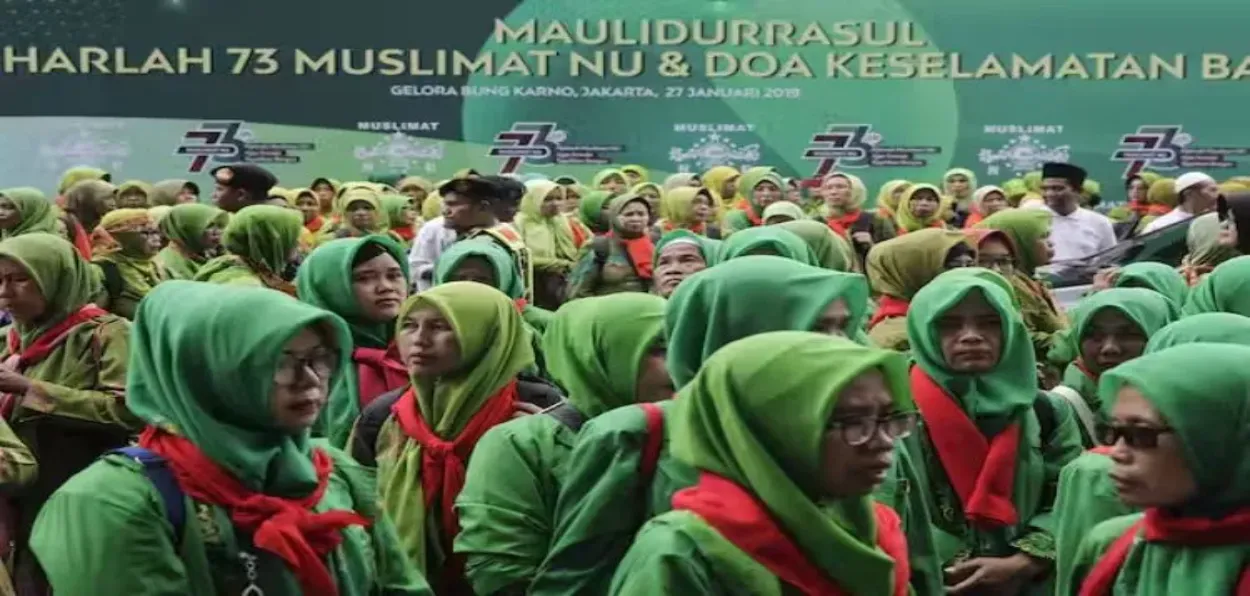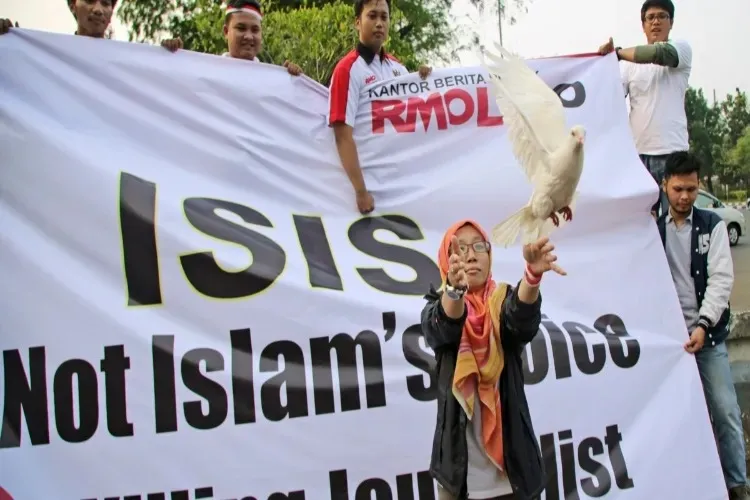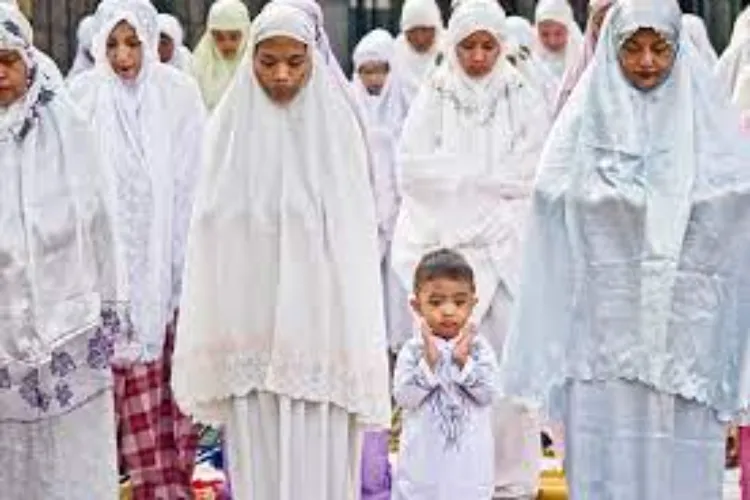
Mansoorudin Faridi/New Delhi
In the mid-nineties when the Islamic State of Iraq and Levant (ISIL), or ISIS threatened the Islamic world through its violent Islamic ideology, Indonesia’s main Muslim organization Nahdlatul Ulama decided to act to save the country's young people from being lured by the terrorist group.
The Nahdlatul Ulama, the world's largest Muslim organization with an estimated strength of 52 to 95 million members went into a huddle to reaffirm the form of Islam practiced in the island country, home to the world's largest Muslim population and yet one of the most diverse and peaceful nations.
Indonesian Islam is accepting of other faiths, respects diverse cultures, and doesn’t believe in the idea of a Caliphate. The learned assembly of NU gave a new name to their faith - Islam Nusantara, or “Islam of the Archipelago”. The doctrine offered a counter-narrative to the rigid and violent ideology of the ISIL alias ISIS or Daesh.
Islam Nusantara was the theme of Nahdlatul Ulama’s 33rd national conference, or muktamar, in August 2015.

Young Indonesians protesting against ideology of ISIS in Jakarta
At that time, like other Muslim countries, Indonesians were concerned about the possibility of ISIL gaining a foothold in the country. While Islamic scholars in other countries did nothing to check the influence of Daesh on the youth, Nahdlatul Ulama decided to counter the radical ideology with an alternative ideology.
DU's campaign has total support from the national government. As such, the National Counter Terrorism Agency (BNPT) has been strongly supportive of Islam Nusantara. Even President Joko Widodo has described Islam Nusantara as a “bull and bulwark” (benteng dan banteng) to protect the national ideology Pancasila, the national motto of Unity in Diversity, the 1945 Indonesian Constitution, and the Unitary Indonesian State (NKRI).
The main agenda of Islam Nushantra is to protect the concept of the nation-state and advocate the moderate values of Islamic teachings that do not interfere with the cultural and political aspects of a nation. It explicitly rejects the concept of 'Jihad' as an extreme teaching of ancient Islam.
According to a Western Thinktank Islam Indonesian Islamic scholars haven’t ventured out to spread Islam Nushantra in other countries as they are happy to have been able to preempt a disturbing trend of youth, even from Europe, joining Daesh.
This 'reformed' or inclusive version of Islam is overseen by a NU who do work closely with the Indonesian government.

Muslim women in Indonesia
The scholars of the country agree that Islam Nusantara is a theory that can be useful for other countries suffering from terrorism and extremism. That is why efforts are being made to highlight the ideology of Islam Nusantara for the last few decades. Its purpose is to adapt Islam to local customs or in other words, to eliminate the Arab flavour from the religion.
Islam came to Indonesia via Arab. However, the Muslims of the region are socially different from the Muslims of the Middle East and they did not adopt the cultural practices of the Araba. One of the main reasons for the growth of Islam in Indonesia was the moderate attitude of the Sufi Muslims who came here.
Islam Nusantara can also be interpreted as a specific form of Islam that aims to strengthen the local identity among Muslims in the region so that they are tolerant of people of different religions and beliefs who live here.
Indonesian scholars have thus given a model to the world in the form of Islam Nushantra on how to localize a faith to reduce the potential for extremist ideologies. It’s close to India’s inclusive approach in pursuing the Ganga-Jamani civilization.
Indonesian madrasahs owe their jurisprudence education to the moderate role of the Baht al-Masail model. It is led by a cleric and attended by both men and women. This learning model enables Indonesian Muslims to interpret jurisprudence in their local context.
For Indian Muslims, it will be a good idea to understand this peculiar brand of Islam that makes religion compatible with local traditions and culture. It's much like how the Islamic Sufis picked components of the Bhakti tradition which eventually helped develop a culture of harmony.
Indonesian experts also believe that an unnecessary fear associated with Islam can be countered through Islam Nushantra.
Prof. Dr. Farid Atlas, a prominent Indonesian scholar, told the BBC in an interview that. "Modern Islam does not reject local customs and practices, unlike Wahhabi and Salafi Islam. One of the main reasons for the growth of Islam in Indonesia was the moderate attitude of the Sufi Muslims who came here.
Researcher and Islamic scholar Dr. Ahmed Najeeb Burhani also told BBC that efforts are being made to highlight the ideology of Islam Nusantara for the last few decades to prevent extremism in the country. The purpose of which is to adapt Islam according to local customs.
.webp)
A poster promoting Islam Nusantara
He said, Islam Nusantara is a specific form of Islam in Indonesia, which aims to strengthen the local identity among the Muslims of the region so that they show tolerance, tolerance, despite differences with people of different religions and beliefs living here.'
He further said that modern Islam is a theory that can be useful for other countries suffering from terrorism and extremism.It is also worth noting that Indonesia is a Muslim-majority country that, despite any changes, still largely works under the influence of Islam.
Many countries, including India, are showing interest in the Indonesian version of Islamic practices
In this regard, prominent political analyst Gautam Chaudhary writes that. "India being a multi-faith country may find it difficult to follow Indonesia's model of Islam Nushantra. However, the model can be adapted to the Indian version as the problem of Islamic extremism is the same for both countries."
ALSO READ: Saudi documenting Hadith to stop misuse by Islamic radicals, terrorists
"Similar to the Udaipur massacre in India, Indonesia also faced similar problems between Muslims and Christians in the late 90s. It was resolved through the formation of interfaith organizations and constructive dialogue, which ultimately resulted in the creation of Islam Nusrat. He further writes that by learning from Indonesia, India can develop its version of Islam Nushantra by incorporating local culture with Islam and making religion a source of love, brotherhood, and harmony."
